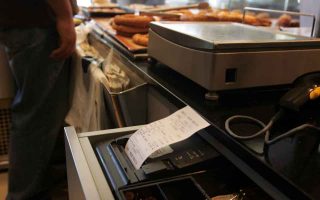New tax bill heads to Parliament
Legislation changes way self-employed professionals are assessed with minimum threshold

A new tax bill will be submitted to Parliament on Wednesday night that changes the way professionals, the self-employed and sole proprietorships are taxed by introducing a presumptive method, where the minimum amount to be taxed is not less than 10,920 euros. Despite strong opposition from the professional sectors, the government is making small but substantial improvements, without, however, changing the philosophy of the bill.
Indeed, Deputy Minister of National Economy and Finance Haris Theoharis and Tax Policy Secretary-General Maria Psylla are reviewing the some 2,600 comments received during the public consultation, which ended on Monday night, to determine whether some of the proposals should be included in the draft law.
The essential revisions that have already been decided include the addition of a provision that will make explicit reference that all taxpayers can challenge presumptions.
According to reports, automatic mechanisms will be put in place to contest the presumption, but these will result in an audit. Not only will income and expenses be scrutinized, but so will assets and bank deposits. The audit will cover asset purchases, bank deposits, card payments, and general consumer spending.
At the same time, the provisions that currently apply concerning military service, hospitalization, detention in prison, pregnancy or maternity, inability to work due to damage caused by natural disasters etc are maintained.
There are also plans to reduce the rates of increase of imputed income due to turnover in order to limit the burden on professionals. The minimum remuneration is increased by a factor when the self-employed persons’ annual turnover is significantly higher than the average annual turnover of their activity code number (KAD).
The imputed income is limited for professions and sole proprietorships, such as school canteens and seasonal enterprises registered with the Independent Authority for Public Revenue (AADE).
In these cases the imputed income will be calculated on the basis of the months of operation of the business. For example, if the business is open four months of the year, the minimum income will be limited accordingly.
Deductions and exemptions are also included for families with disabled children and single-parent families. Farmers and self-employed persons with an invoice book (“blokaki”) are excluded from the new system to be applied to sole proprietorships.





